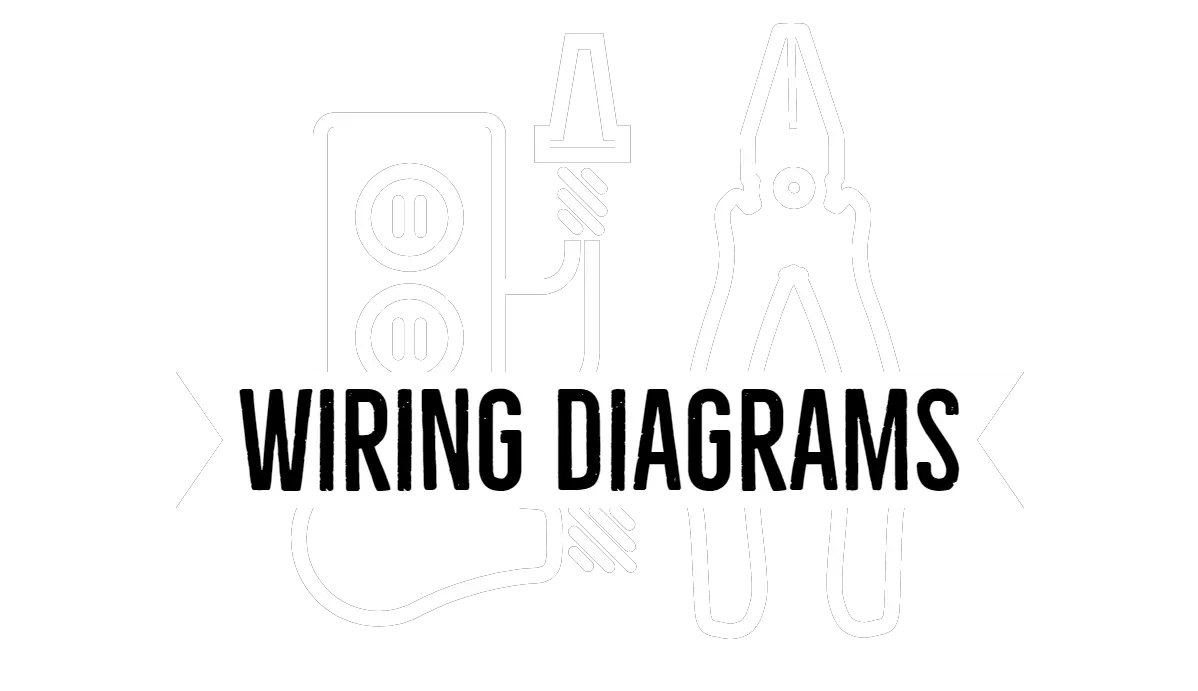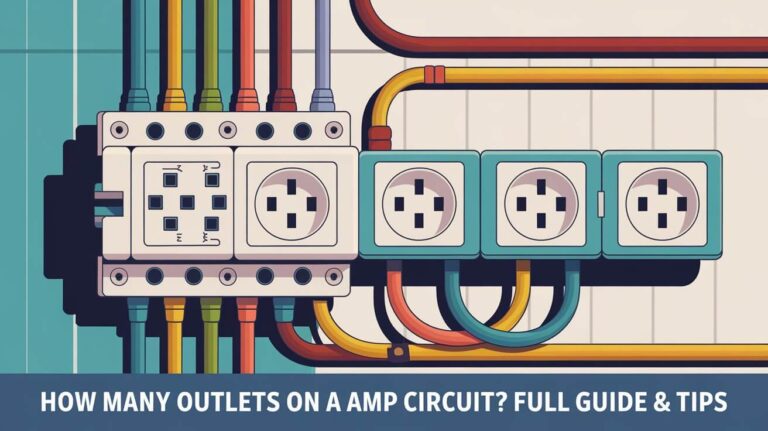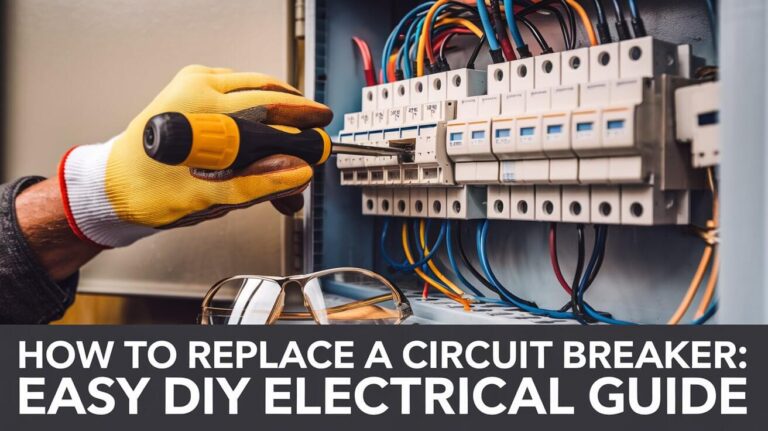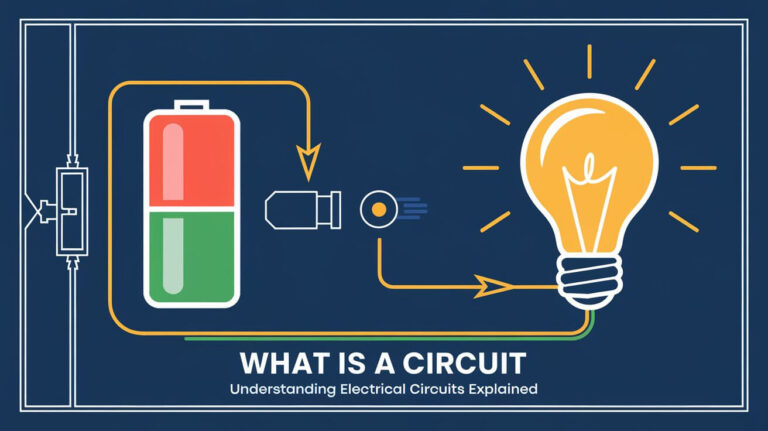Can Circuit Breaker Issues Wait a Day to Fix?
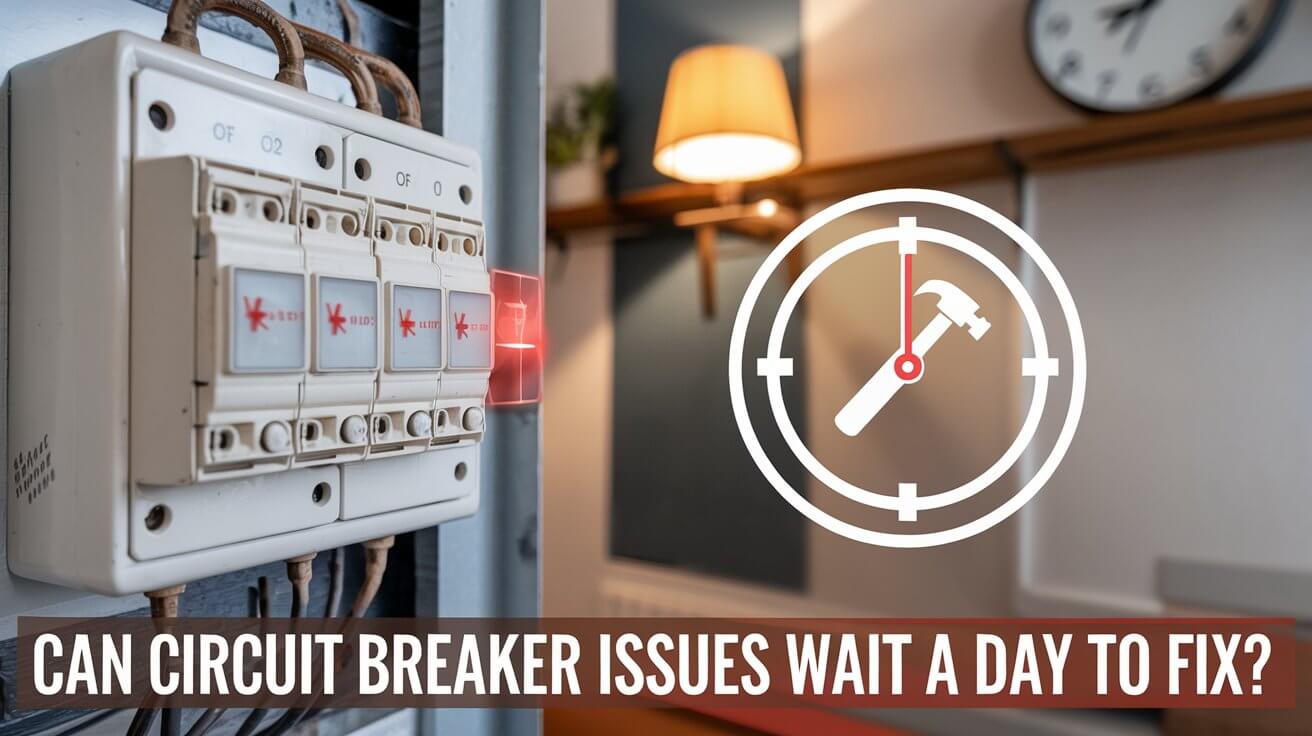
Circuit breaker issues can create headaches for homeowners. But the big question is: can you wait a day to fix a circuit breaker issue? The answer depends on the severity of the problem. Minor problems such as occasional tripping due to temporary overload might not need immediate attention. However, serious issues—like a breaker that won’t reset, buzzing noises, or burn marks—demand urgent repair to prevent safety hazards such as electrical fires. In this post, we’ll explore how to assess circuit breaker problems and decide when it’s safe to wait and when it’s necessary to act quickly.
How Circuit Breakers Function and Common Issues
What Does a Circuit Breaker Do?
A circuit breaker serves as a safety mechanism that prevents electrical overloads and fires. When electrical current exceeds the safe capacity of a circuit, the breaker “trips,” cutting off power to prevent damage. Circuit breakers protect your home’s electrical system from events like overloads, short circuits, and ground faults, which can lead to overheating, equipment failure, or even fires.
- Overload: Happens when too many devices are plugged into the same circuit, drawing more power than it can safely handle.
- Short circuit: Occurs when hot and neutral wires touch, allowing electricity to bypass its normal route, generating excess current.
- Ground fault: Similar to a short circuit, but happens when a hot wire touches a grounded surface, such as a metal box or pipe.
Can You Wait a Day to Fix a Circuit Breaker Issue?
When It’s Safe to Wait
If your circuit breaker issue seems minor, it might be okay to wait a day. Here are a few instances when you can delay:
- Occasional tripping: If a breaker trips only once or twice due to a temporary overload (like running multiple appliances simultaneously), you can likely wait to address it.
- Identifiable overload: If you know what caused the breaker to trip—such as using a space heater along with other devices—unplugging those items may stop the issue from recurring until you redistribute power properly.
- No visible damage: As long as there are no strange sounds or smells, waiting briefly for professional help may be acceptable.
Precautions:
- Turn off or unplug non-essential devices.
- Monitor the breaker closely for any worsening signs, like repeated tripping.
When You Shouldn’t Delay Repairs
Certain situations indicate that waiting even a day could result in serious risks. If you encounter the following, act immediately:
- Frequent tripping: If the breaker keeps tripping multiple times in a short period, this could indicate a wiring issue or a faulty breaker.
- Burning smell or visible damage: These are clear signs of an electrical problem that could lead to fire hazards.
- Buzzing or crackling noises: Loose connections or electrical arcing can create dangerous conditions and need urgent attention.
Risks of Delaying Circuit Breaker Repairs
Even minor electrical issues can turn dangerous if left unattended. Here are the primary risks associated with delaying repairs:
- Electrical fires: Faulty wiring or overloaded circuits are among the leading causes of house fires.
- Damage to appliances: Sensitive electronics may get damaged from repeated power interruptions caused by tripped breakers.
- Power outages: Essential devices, such as refrigerators or medical equipment, may stop working, posing health risks.
What to Do While Waiting for a Repair
If you have no choice but to wait before a professional can assess the issue, follow these tips to keep your home safe:
Unplug Appliances
Unplug any appliances or devices connected to the circuit that is causing trouble. This reduces the risk of further overloads or tripping while you wait.
Redistribute Power Loads
If multiple devices are drawing power from the same circuit, redistribute them across other circuits in the house, if possible. For example, avoid running large appliances like washing machines on the same circuit as your living room electronics.
Use Alternative Power Sources
If the affected circuit powers essential areas, such as lighting, consider using temporary solutions like battery-powered lights or extension cords (plugged into different circuits).
Stay Vigilant
Keep an eye (and nose) out for burning smells, sparks, or unusual noises from the breaker box. If any of these signs appear, call an electrician immediately, as they indicate severe electrical hazards.
Preventative Measures to Avoid Breaker Issues
Regular Inspections
Schedule regular electrical inspections to catch problems early. A professional electrician can assess your electrical panel and wiring to ensure everything is functioning safely.
Upgrade Old Circuit Breakers
Older circuit breakers may struggle with modern power demands, especially in homes with new appliances and electronics. Upgrading to newer, higher-capacity breakers can prevent frequent tripping and improve safety.
Avoid Overloading Circuits
Distribute your electrical devices wisely to avoid overloading any single circuit. Using surge protectors can also help protect appliances from power spikes.
Install Ground Fault Circuit Interrupters (GFCIs)
GFCI breakers are designed to detect ground faults and cut power immediately to prevent electric shocks. Installing them in areas like kitchens and bathrooms adds an extra layer of safety.
When to Call an Electrician Immediately
If you encounter the following signs, don’t wait to call a licensed electrician:
- Breaker won’t reset: This could indicate a deeper issue in your electrical system.
- Persistent tripping: Repeated issues signal potential overloads or faulty wiring.
- Sparks or smoke: These are signs of electrical arcing or loose connections and need urgent attention.
- Electric shocks: If anyone in your home receives a shock from a fixture or outlet, there could be a serious fault in the wiring.
Conclusion
Whether or not you can wait a day to fix a circuit breaker issue depends entirely on the severity of the problem. Minor issues, such as occasional tripping due to temporary overload, may not require immediate intervention. However, serious issues, such as buzzing sounds, burning smells, or frequent tripping, need prompt attention to avoid electrical fires and other hazards. If in doubt, it’s always safer to call a licensed electrician. Your home’s safety is worth prioritizing over the convenience of waiting.
By being proactive with regular inspections, load management, and timely repairs, you can ensure your electrical system remains reliable and safe. When electrical issues arise, taking quick action or seeking professional help will help protect your family, appliances, and property.
